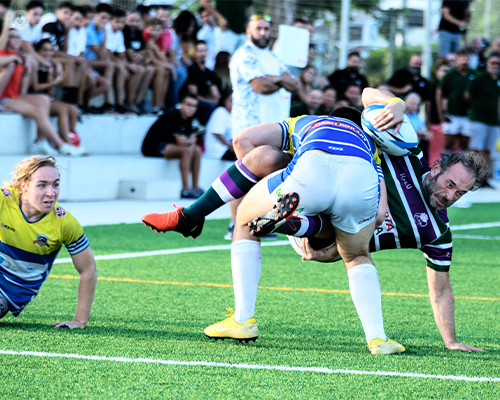Taking care in the Olympics: rugby and sporting knee injuries
Written by:Rugby 7s is a new sport to the Olympics. The athletes will have prepared for months and years to partake in the Olympics. They should be at their peak physical condition. Yet despite this preparation, injuries still happen. Knee injuries are amongst the more common ones seen, and consultant orthopaedic and traumatology surgeon Mr Andrew Edwards has provided thorough explanations in this part I article.

What are the most common rugby and sports knee injuries?
The most common rugby union injuries are those to knee ligaments and meniscus cartilages. Rugby 7s tends to have a higher incidence of injury compared to rugby 15s. This is due to the speed and explosive nature of this form of the game. The medial collateral ligament (MCL) is probably the most common injury, but usually can be treated by bracing and rehabilitation.
However, anterior cruciate ligament (ACL) injury and significant meniscal tears most often require surgery and a very lengthy time away from the athletes’ sports. Cutting, pivoting, sudden accelerations, and contact moments (tackles) put the knee through enormous strains. It is amazing that the knee can put up with such stresses. I doubt any mechanical devise could possibly cope with what we expect of our knees.
What precautions are taken in professional sporting events to minimise injuries?
In order to minimise injuries to the knee, the athlete maintains optimum strength and conditioning. This starts with core stability, pelvic balance, hip stability, and optimal gait pattern. This goes hand in hand with specific knee conditioning.
Neuromuscular exercise and sports specific conditioning are of great importance, which has been reported to reduce injury to the knee in female football players, and lends itself to all contact, pivoting, cutting, acceleration-deceleration sports including rugby. It is this preparation that takes dedication and time to achieve, minimises the risk of knee injury to the athlete. In addition, a good warm up programme before training and playing also is essential. The football world through the FA introduced the “11+ warmup programme”. This showed that correct preparation to physical exertion could reduce injury incidence. This rings true for rugby 7s and 15s, and many other sports.
Are knee supports in rugby and other sports essential for players?
Certain knee supports for previously injured players are allowed in rugby nowadays. However, these are not of the strength and level of support offered for other sports and activities such as skiing. Therefore, wearing a knee support is not sufficient to prevent ligament injury, but may be used as an adjunct to other treatments for athletes with pre-existing injuries.
If you have had a rugby or other sports injury, you can go to Mr Edward's Top Doctors profile and book a consultation.


